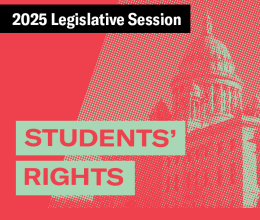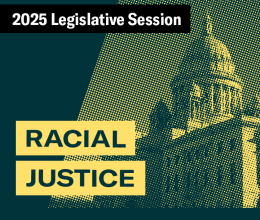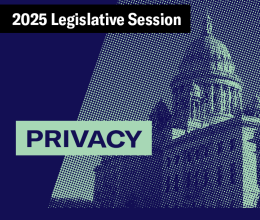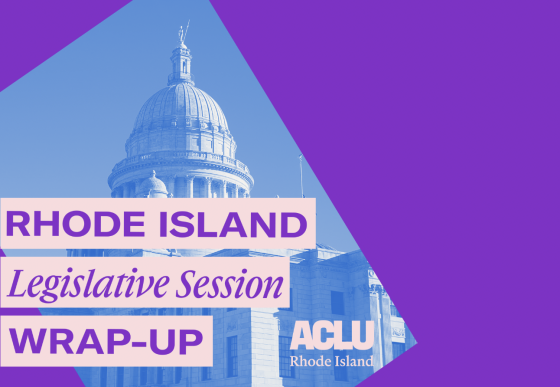Even as consensus grows nationwide that out-of-school suspensions carry a lifetime of ill effects and should only be used for the most serious offenses, Rhode Island’s students are routinely suspended from school for small infractions that pose no risk of physical harm or serious distraction to their peers. The ACLU has demonstrated for the past several years that the tremendous overuse of suspensions in Rhode Island’s schools leaves students of color and students with disabilities disproportionately affected, particularly for the less-serious “subjective” offenses. As a result, these students are disproportionately subjected to the serious consequences that follow from even one suspension, including an increased likelihood of dropping out and, later, incarceration. In June, the General Assembly approved legislation tackling this “school-to-prison pipeline” by requiring that suspensions be served in-school, unless the student poses a physical risk or serious distraction to other students, and requiring school districts to examine their discipline data annually and come up with plans to mitigate any disproportionate suspension rates that may exist. Similar legislation passed both the House and Senate in 2015, but died when neither chamber approved the other chamber’s bill. This year, both chambers approved each other's legislation in time for the bills to head to the Governor's desk and be signed into law in June.
The School-to-Prison Pipeline (H 7056, H 7057, S 2168)
Sponsors
Representative Grace Diaz and Senator Juan Pichardo
Status
Passed
Session
2016
Bill number
7056, H 7057, S 2168
Position
Support
Related Issues
Related content

Doe v. Infante-Green
June 30, 2025
Increasing Amount of Social Workers in Schools (H 6045, S 250)
May 9, 2025
Hairstyle Discrimination (H 5841, S 519)
April 15, 2025
School Cell Phone Policies (S 771A, H 5598)
April 4, 2025
School Improvement Teams (H 5165A)
March 28, 2025
Right to an Education (S 177, H 5459)
March 21, 2025
School-Loaned Computer Privacy (H 5176A, S 232)
February 12, 2025
LETTER Re: Warwick School Committee Draft AI Policy
December 12, 2024

